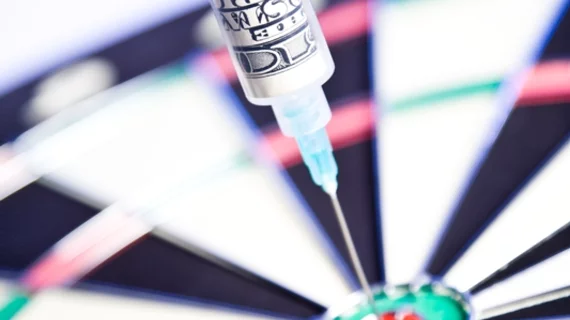Digital health funding stalls in third quarter
The third quarter of 2022 was the smallest funding quarter of the year so far for digital health, highlighting the changing fundamentals across the economy impacting the sector.
During the third quarter, $2.2 billion was raised across 125 deals in digital health, according to a report from Rock Health. That represents the lowest quarter by dollars in the sector since the fourth quarter of 2019, when $2.1 billion was raised, and the lowest funding in the past 11 quarters. Through the third quarter of 2022, the yearly total raised reached $12.6 billion across 458 deals, and Rock Health is skeptical that the year will end with even half of 2021’s $29.2 billion raised.
The slowdown in funding comes as the healthcare sector at large is facing enormous financial pressures. Hospitals and health systems are staring down at negative margins for the year, with billions in losses thanks to sky-high inflation rates, rising wages and labor pressures, as well as ongoing impacts from the COVID-19 pandemic on revenue. As healthcare businesses look toward the last three months of the year, investors are also looking at these economic fundamentals and pulling back.
According to Rock Health, the third quarter findings reveal smaller checks across the board for deals, plus investors’ focus on early-stage funding, a reprioritization of technology investments and an exit market that has started to thaw. Plus, those trends coincide with huge interest rate spikes from the Federal Reserve over the past several weeks, which has dramatically altered the real estate market and had greater impacts across the economy. Those trends may hint at what’s to come for the end of the year, too.
While there was less funding overall during the quarter, there were some standout M&A deals, including megadeals announced by Amazon and CVS Health. In July, Amazon announced it was acquiring One Medical for nearly $4 billion, while CVS Health announced an $8 billion acquisition of Signify Health in September.
One marked difference in the third quarter was the smaller amount of funding for a similar volume of deals as past quarters. Overall deal value dropped 48% from the second to third quarter of 2022, from $4.2 billion to $2.2 billion. However, deal count only fell by 14%. Smaller deal size pushed down the quarterly total more so than deal volume.
In addition, early-stage funding was more popular during the third quarter, as only six funding raises were of Series C or higher, or less than 5% of total deal volume. That’s a big difference from 19 Series C+ raises in quarter two and 32 marked in the first quarter. There were also only two funding raises of $100 million or more––Cleerly ($223 million) and Alma ($130 million).
The funding trends during the quarter may also reveal shifts in the sector. For instance, digital health players specializing in nonclinical workflow solutions scored the most funding with $1.8 billion. “Digital health startups catalyzing R&D for biopharma and medtech fell from first place to third place with $1.7B raised so far in 2022,” Rock Health reported.
“To us, strong funding flows to workflow tools mean that addressing healthcare staff shortages and employee burnout remain top priorities,” the report stated. “This trend is also reflected in funding for healthcare marketplaces, the fifth most-funded value proposition, led by nurse staffing platform Incredible Health’s $80M raise in August.”
Telemedicine funding also fell during the quarter and through 2022, compared to 2021, suggesting investors may be more skeptical of the telemedicine providers. Immersive and decentralized health-tech enablers are gaining more traction as telemedicine interest wanes.
“While Q1 and Q2 2022 may have read as adjustment periods coming off of 2021, Q3 represented a clear departure from the COVID-driven digital health financial market, including changed market dynamics, shifts in investor focus to prioritize workflow support and complex diseases, and growing excitement for new technologies and immersive solutions,” Rock Health concluded.

